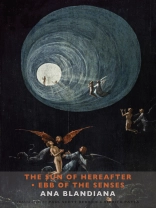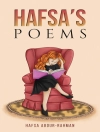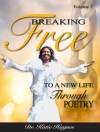Ana Blandiana is one of Romania’s foremost poets, a leading dissident before the fall of Communism, and now her country’s strongest candidate for the Nobel Prize. A prominent opponent of the Ceausescu regime, Blandiana became known for her daring, outspoken poems as well as for her courageous defence of ethical values. Over the years, her works have become the symbol of an ethical consciousness that refuses to be silenced by a totalitarian government.
This new translation combines her two collections, The Sun of Hereafter (2000) and Ebb of the Senses (2004), both written after the fall of the Iron Curtain while Blandiana was actively and selflessly involved in the public sphere as President of the Civic Alliance (1990-2001), a non-political organisation that made possible Romania’s integration into the European Union. These two books mark a turning point in Blandiana’s poetic evolution: they lead towards a new conception of poetry as a reflection on being that culminates in My Native Land A4 (first published in Romania in 2010 and published in English by Bloodaxe in 2014).
After 1989, the motifs of her poetry remain the same but they acquire a more universal dimension. For Blandiana, the writer is less a creator than a witness of the world she inhabits. She believes that poetry records the experience of one’s time and insists that it is ‘not a series of events, but a sequence of visions’.
Blandiana’s poetry oscillates between the sensual perception of the world and a nostalgia for transcendence. Enigmatic definitions alternate with a series of coded questions charged with melancholic gravity. In fact, her poetry could be seen as a quest for definitions reached through a series of questions. Her poems describe the degradation of humanistic values and the different ways in which the individual is threatened. They express a yearning for a state of primordial purity and an awareness of destructive forces which the self must confront.
‘Blandiana is a pure lyricist, focused entirely on the event of how imagination finds words and rhythms that make certain mental experiences memorable. Her poems characteristically achieve strange precisions by having pervasive metaphors unfold her sense of ‘sacred void’ as negative plenitude.’ – Charles Altieri, UC at Berkeley
Mengenai Pengarang
Viorica Patea is Associate Professor of American Literature at the University of Salamanca, where she teaches American and English literature. Her published books include Entre el mito y la realidad: Aproximación a la obra poética de Sylvia Plath (Ediciones Universidad de Salamanca 1989), a study on Whitman, La apología de Whitman a favor de la épica de la modernidad (Ediciones Universidad de León, 1999) and T.S. Eliot’s The Waste Land (Cátedra: 2005). She has edited various collections of essays, such as Critical Essays on the Myth of the American Adam (Ediciones Universidad de Salamanca, 2001) and, together with Paul Scott Derrick, Modernism Revisited: Transgressing Boundaries and Strategies of Renewal in American Poetry (Rodopi 2007). Her most recent publication is a collection of essays, Short Story Theories: A Twenty-First-Century Perspective (Rodopi 2012), which received the Javier Coy Research Award for the best edited book (2013) from the Spanish Association of American Studies. Her research interests include comparative studies in witness literature of East European countries. In collaboration with Fernando Sánchez Miret, she has translated from Romanian into Spanish the annotated edition of El diario de la felicidad by Nicolae Steinhardt (Sígueme 2007) and Proyectos de Pasado and Las Cuatro estaciones by Ana Blandiana (Periférica 2008, 2011). She is also co-translator, with Paul Scott Derrick, of Ana Blandiana’s My Native Land A4 (Bloodaxe Books, 2014) and The Sun of Hereafter / Ebb of the Senses (Bloodaxe Books, 2017).












